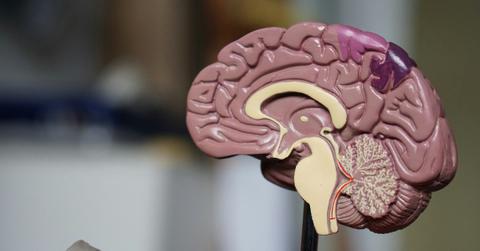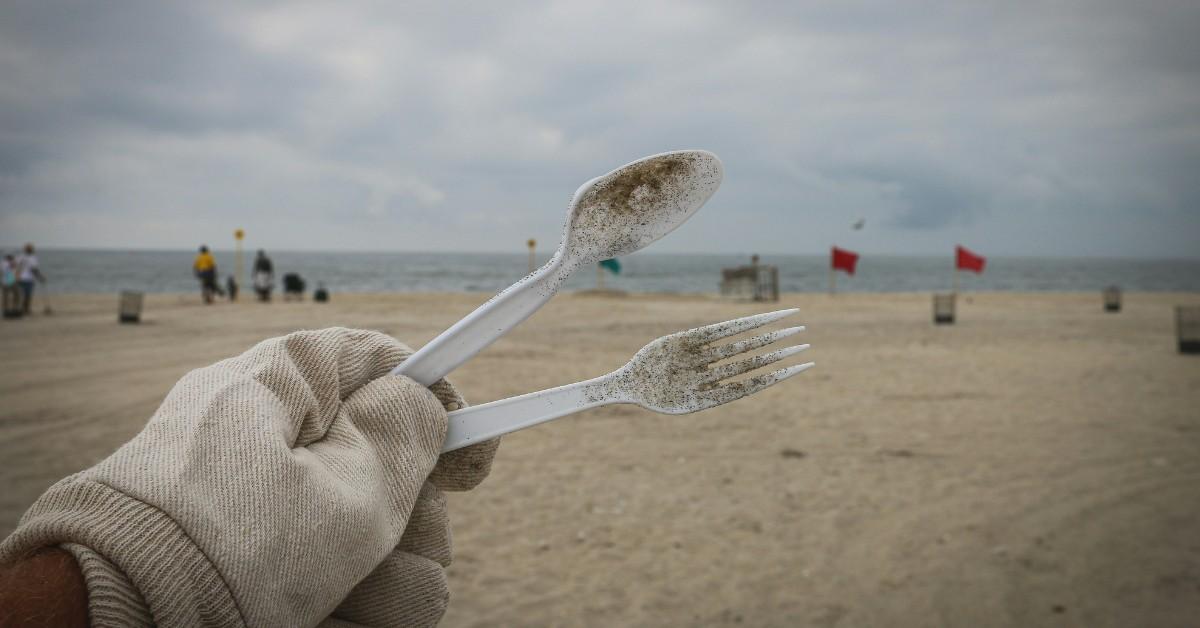An Entire Spoon's Worth of Microplastics Found in Human Brain Samples, and May Be Connected to Dementia
You're going to look at disposable spoons in a whole new light after reading this study.
Published Feb. 4 2025, 11:10 a.m. ET

A 2025 study from a group of scientists may have you thinking about plastic spoons a little bit differently, after they revealed that they've found the equivalent of one of the throwaway devices in samples of human brain tissue.
The study's authors say that they found an entire disposable spoon's worth of microplastics in the human brain samples they pulled from cadavers, which equates to around 7 grams per brain. Not only that, but the study also says that there may be a connection between microplastics in the brain and dementia.
You can learn more about the findings below.

A study finds a spoon's worth of microplastics in samples taken from human brains.
Scientists posted their findings in the journal Nature Medicine on Feb. 3, 2025. According to the study, University of New Mexico scientists pulled the shards of microplastics from the brains of human cadavers. The pieces were less than 200 nanometers in size, according to the study's lead author Dr. Matthew Campen, who was quoted by USA Today.
"That's roughly the size of two COVID viruses side by side," he explained.
The scientists working on the study used tissue samples from people who underwent autopsies following their deaths in 2016 and 2024, and they included bits of liver and kidney as well.
A total of 52 brains were sampled as part of the research. And while microplastics were found in all samples, CNN reports that there was a marked increase in the amounts when compared with other samples from 1997 and 2013.
Additionally, the study found that the brain had more microplastics than the other tissue samples, which CNN notes amounted concentrations that were between seven to 30 times higher than what was found in other organs.
Microplastics found in human brain samples have links to dementia.
The study findings also noted a connection between the presence of microplastics and dementia. According to CNN, the 12 brains that belonged to people who had a known dementia diagnosis contained between three to five times the amount of microplastics.
These shards were mostly found in the brain's immune cells, as well as the veins and arteries of the brain, according to the report.
That being said, the study's lead researcher cautioned against blaming microplastics for causing dementia; instead, he believes that the impaired blood brain barrier present in dementia patients may have simply allowed more plastics to enter the brain.
But still, the presence of so much plastic in the human body has caused some to sound the alarm, as the full scope of the impacts are not yet known.
With researchers continuing to find microplastics in more and more places — in addition to human organs like the brain, the heart, and the penis, microplastics have also been found in dolphins and in rainwater in the Colorado Rocky Mountains — it's important for scientists to keep learning about all of the places these tiny shards of plastic are found, and what that means for the continued health and well-being of both us and the planet.
For now, it doesn't sound like this study presents any new information to be too alarmed about. But, if people want to try and limit their exposure to microplastics, they can follow some of the advice that has been shared experts, such as avoiding single-use plastics when possible, and keeping plastic dishes out of the microwave.